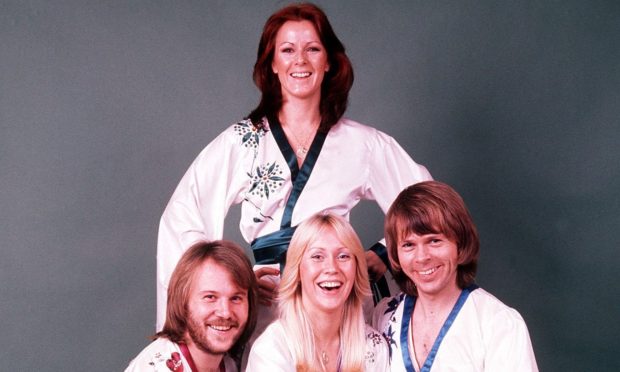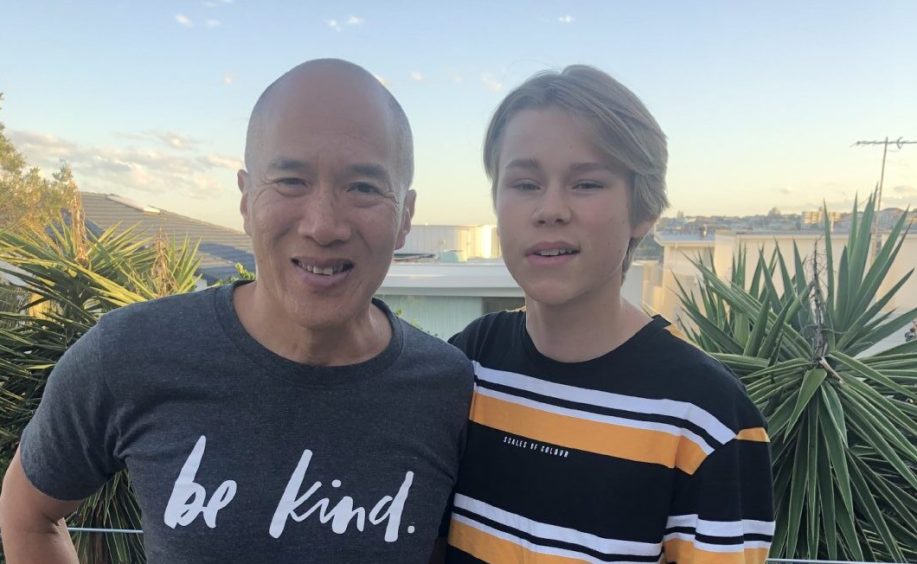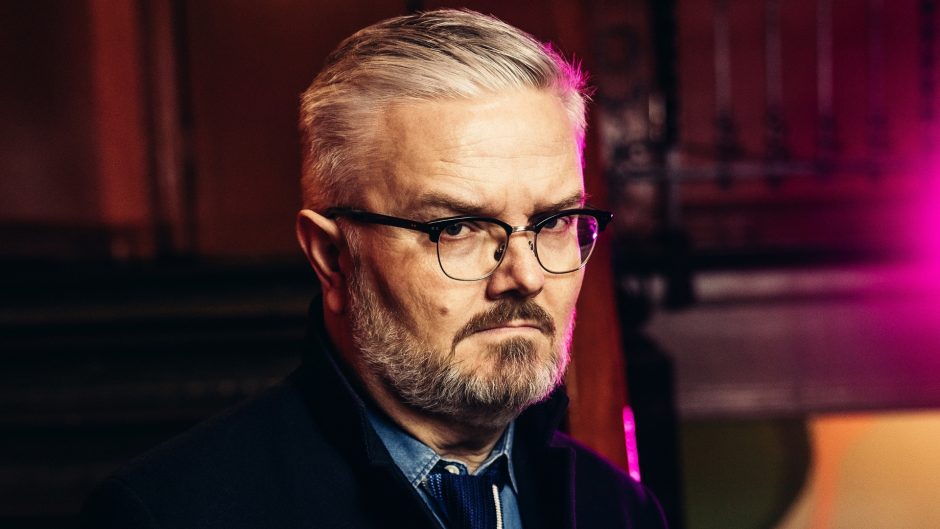
This is a story about ABBA, but maybe not one you know.
In 2006, Olle Alfven, the two-year-old son of Moa and Mans Alfven, was diagnosed with a brain tumour the size of an orange by doctors at the Sydney Children’s Hospital in Australia. His prognosis was not good.
But friends mentioned a surgeon called Charlie Teo who worked for a private hospital in Sydney and had a reputation for taking on “impossible” challenges.
The surgeon had a look at Olle’s X-rays and said he was willing to operate. It would, he told Olle’s parents, be difficult and dangerous. They agreed to go ahead.
The surgery required him to operate on Olle for 14 hours straight without a break and without food, only drinking water through a straw.
How did he manage to keep his concentration so focused for so long? He listened to ABBA.
The operation was a success. Olle survived and the Alfvens kept a promise they made to the surgeon beforehand. They took him to Sweden and introduced him to ABBA’s Benny Andersson.
They all ended up singing Thank You For The Music while Benny played piano.
The story of Olle and Charlie Teo is told by Jan Gradvall in The Book Of ABBA: Melancholy Undercover, a fascinating and fresh look at Sweden’s pop superstars.
The Book of ABBA
Jan, who lives in Stockholm and has been a music journalist for 40 years, is a friend of the Alfvens and when he started writing the book he knew he wanted to include Olle’s story. He even interviewed Charlie Teo to ask him, why ABBA? “I said, ‘You must be getting tired of those songs’,” Jan recalls. “He said, ‘I don’t, actually, because I discover some small detail here and there. So they always give me something new’.”
You could say the same of The Book Of ABBA which draws on Gradvall’s own interviews with all four members of the band. It takes in politics, gay dance culture and the Second World War.
Jan has a long history with the band. The first album he bought with his own money was ABBA’s second album, Waterloo, released after they won the Eurovision song contest in 1974.
In 2013, he interviewed all four members for a Swedish magazine; the first time they had all spoken in the same article since they split up in the early 1980s.
“I think they sort of trusted me after that because I wanted to ask them about music,” Jan recalls. “Strangely enough, no one had done that in Sweden. They only wanted to know about the money, the divorces, politics, that sort of thing.”
And so he was given a ticket to what he calls “ABBAworld”. He conducted exclusive interviews with Bjorn, Benny, Agnetha and Frida for the book. In fact, he tells me, he just interviewed Benny about his new album with his current band The Benny Andersson Orkester a week ago.
The Book Of ABBA looks at how the band were seen in their home country as they became successful (surprisingly they faced huge criticisms in the 1970s; Sweden was a left-wing country at the time and ABBA’s success marked them down as “capitalists”), why they were different lyrically and musically from everyone else and why they are now so loved. It also tells us more about Benny, Bjorn, Agnetha and Frida as individuals.
In its own way ABBA’s is one of the most remarkable stories in pop; a band from a small country in northern Europe with no tradition in pop music conquers the world.
And even now, more than 40 years after they were at their peak, they are loved by young and old, as seen in the success of ABBA Voyage, the virtual concert residency in London and the accompanying album. The last, Jan believes. He doesn’t think there will be any more music.
The music
While all four had enjoyed success in Sweden before they became ABBA no one could have predicted that 70s ABBA would be one of the biggest bands in the world with hits such as Mamma Mia, Take A Chance On Me and Dancing Queen.
Musically, what sets them apart? Jan argues it was primarily the combination of Agnetha and Frida’s voices, a soprano (Agnetha) and a mezzo-soprano (Frida), singing in unison. “You get another sound that no one else gets.”
Added to that, the band had more European than American influences feeding into their music. “There are no blues influences in ABBA,” he points out. “They say they grew up listening to the radio in Sweden which quite rarely played pop music. There was the occasional pop song, but it played German schlager music, French chanson, Italian pop, classical music. And you can hear all of that.
“But their melodies have something that goes back to Swedish folk music – that combination of happy/sad. Benny said even the happiest songs were melancholic.”
Pete Townsend, of The Who, once suggested ABBA were one of the first bands to write songs about “middle-aged problems”, which also made them stand out. “They were two couples in their early 30s,” Jan explains. “They sang about divorces, having the kids every second week, that kind of stuff, which is very odd to sing about in the context of extremely catchy pop songs which you play on Top Of The Pops.”
New life
ABBA never officially split up but they stopped making music in the early 1980s and their music was largely ignored for most of the rest of the decade. It took the success of Erasure’s ABBA-esque EP, combined with the band’s continued popularity in the gay community, to give them a new life in the 1990s.
“And then a very clever person at Polygram in the UK made the ABBA Gold album which ABBA had nothing to do with,” Jan adds. It remains the second best-selling album in UK history. Mamma Mia! The musical and the film version only cemented their position as one of pop music’s most-loved bands.
What do Benny, Bjorn, Frida and Agnetha think about their success today?
“I think when they dissolved in the early 80s they were very tired of each other. ABBA started with two marriages and ended with two divorces. There were quite bitter arguments about money for a long time with their manager and the record company. The revival made them see it in a different way. Right now, I think they are very proud of their legacy.”
In Stockholm there is a young man called Olle who is just a little part of it.
Where are they now, 50 years on?
AGNETHA
“She hated touring with ABBA because she had kids, basically, but she loved being in the studio. Now she lives the quiet life with dogs and horses in a house outside Stockholm and her two children have houses nearby.
“She is not interested in going to premieres, but she is not a recluse. She is a very normal Swedish woman.”
BJORN
“Bjorn used running as therapy. That was his way of staying sane and maybe not having to deal with issues from his childhood. He had a very complicated relationship with his father. He has always appeared to be the ambassador for ABBA. He is the most talkative one, but privately has a darker side.”
Bjorn, Gradvall’s book reveals, has had issues with both his self-confidence and alcohol over the years.
“I think in other cases with legendary bands – like Fleetwood Mac, The Eagles, Led Zeppelin – their stories have always been told in the music press in the UK and the States, but ABBA was considered too lightweight to be taken seriously. It’s finally time to do that with ABBA.”
BENNY
“He’s written all the melodies since the beginning. I think you should be careful with the term musical genius, but he really is.
“In Sweden his compositions – the instrumental ones he has written after ABBA – are played endlessly at funerals and wedding ceremonies. So, he is like a classical composer in Sweden.”
FRIDA
“I write about her very special background, being the child of a German soldier and a young Norwegian teenager during the time Nazi Germany occupied Norway. And we all know what happened to kids born with German fathers. Her grandmother realised this and took her to Sweden.
“Even though she comes from that background she is married to a prince in Switzerland and she really feels a bit like royalty when you meet her. She is very sophisticated, very smart.
“They have been living in Majorca and Switzerland for a very long time. If you go to the areas where Benny or Agnetha live you can see them in daily life, but Frida is rarely seen in Sweden.
“But I know she loves ABBA Voyage. She is the one who has been there most. I saw on Instagram yesterday she was there again, waving to the audience, dressed all in white.
“So she really appreciates ABBA now, even more, maybe, than when they were active. I think she is very proud of what they achieved.”
The Book Of ABBA: Melancholy Undercover by Jan Gradvall is published by Faber, £20. Jan will be talking about his book at Waterstones bookshop in Sauchiehall Street, Glasgow, on October 25

Enjoy the convenience of having The Sunday Post delivered as a digital ePaper straight to your smartphone, tablet or computer.
Subscribe for only £5.49 a month and enjoy all the benefits of the printed paper as a digital replica.
Subscribe
 © PA
© PA